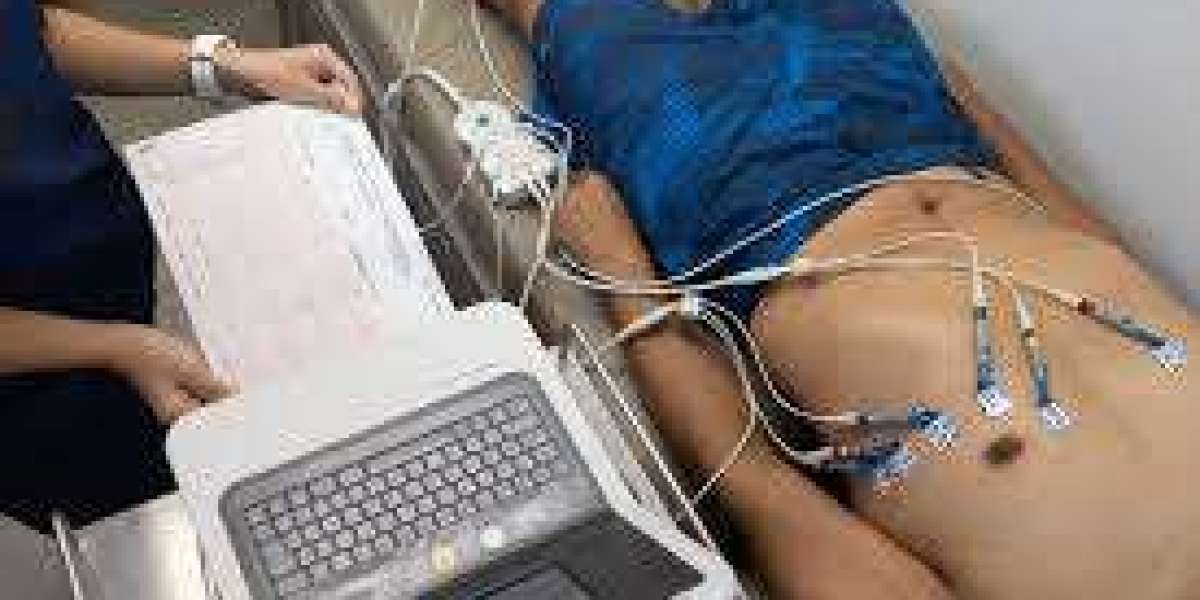ECG Test Near Me
When it comes to understanding your heart health, one of the most common and reliable diagnostic procedures is an electrocardiogram, often abbreviated as ECG or EKG. If you’re searching for a trusted center to book an ecg test near me, it means you want clarity about your cardiovascular well-being. An ECG is not just for patients with serious symptoms—it’s a simple test that can reveal hidden issues before they become severe.
In this guide, we’ll explore everything you need to know about ECG tests—from how they work and why they’re important, to preparation tips, benefits, and what your results might mean.
What is an ECG Test?
An ECG (electrocardiogram) test is a diagnostic tool that records the electrical activity of the heart. Small electrodes are attached to the skin, usually on the chest, arms, and legs, and these pick up the electrical impulses generated as your heart beats.
The data is then presented as a graph on a monitor or printed paper, allowing doctors to analyze the rhythm, strength, and timing of your heartbeats.
Why is an ECG Test Done?
ECG tests are widely recommended for multiple reasons:
- Detecting irregular heart rhythms such as atrial fibrillation or tachycardia.
- Diagnosing heart attacks both past and present.
- Monitoring the effects of heart medications.
- Evaluating pacemaker function.
- Checking for heart abnormalities before surgery or in routine health check-ups.
Essentially, an ECG provides a quick snapshot of your heart’s functioning, making it a go-to test for preventive and emergency care.
Types of ECG Tests
There are several variations of ECG tests depending on the need:
1. Resting ECG
- Conducted while the patient is lying down.
- Records heart activity in a calm state.
2. Stress or Exercise ECG
- Performed while walking on a treadmill or cycling.
- Helps assess how the heart responds under stress.
3. Holter Monitor Test
- Involves wearing a portable ECG device for 24–48 hours.
- Provides continuous monitoring to catch irregularities missed in short tests.
How to Prepare for an ECG Test
The preparation process is simple, but a few steps help ensure accuracy:
- Avoid applying lotions or oils to the skin on the day of the test.
- Wear loose-fitting clothing for easier placement of electrodes.
- Inform the doctor about any medications you’re taking, as some may affect results.
- Stay relaxed before the procedure, as stress or anxiety can influence heart rhythm.
What Happens During the Test?
- You’ll be asked to lie down on a bed or table.
- Electrodes will be attached to your chest, arms, and legs.
- The machine will start recording electrical signals from your heart.
- The process takes just 5–10 minutes.
It’s completely painless and non-invasive. Some patients might feel mild discomfort when electrodes are removed, but no recovery time is needed.
Interpreting ECG Results
An ECG result usually looks like a wavy line on a graph. Doctors analyze:
- Heart rate (too fast, too slow, or normal).
- Heart rhythm (regular or irregular).
- Presence of past heart attacks.
- Any blocked arteries or poor blood flow.
- Abnormal enlargement of the heart chambers.
Your doctor will review the report and explain if further tests are required.
Benefits of Getting an ECG
- Quick and painless.
- Provides instant results.
- Helps detect silent heart problems.
- Useful for both preventive care and emergencies.
- Cost-effective compared to many other heart diagnostics.
Who Should Consider an ECG?
You should consider undergoing an ECG if you experience symptoms such as:
- Chest pain or discomfort.
- Shortness of breath.
- Dizziness or fainting spells.
- Rapid or irregular heartbeat.
- Family history of heart disease.
Additionally, doctors may recommend it as part of routine check-ups for individuals above 40 or those with high blood pressure, diabetes, or high cholesterol.
Risks and Limitations
While ECG tests are safe, they have limitations:
- They provide results only at the time of the test. Intermittent problems may require longer monitoring.
- False positives or negatives can occur, requiring further testing like echocardiograms or stress tests.
- They cannot directly measure blockages in the arteries—only electrical activity.
Conclusion
Your heart is the engine of your body, and taking care of it should never be delayed. If you’re wondering where to start, booking an ecg test near me is one of the simplest yet most effective ways to monitor heart health. With minimal preparation and quick results, an ECG can provide peace of mind or early warning signs that may save your life.
Frequently Asked Questions (FAQs)
1. What is the difference between an ECG and an EKG?
There’s no difference—ECG and EKG are two names for the same test. "EKG" comes from the German spelling “Elektrokardiogramm.”
2. How long does an ECG test take?
A standard ECG test usually takes around 5 to 10 minutes, making it one of the fastest diagnostic procedures.
3. Can I eat or drink before an ECG test?
Yes, there are no dietary restrictions before a resting ECG test. However, if undergoing a stress test, your doctor may advise avoiding heavy meals or caffeine.
4. Is an ECG painful?
No, the test is completely painless. You may only feel mild discomfort when the electrodes are removed from your skin.
5. Do I need a referral for an ECG?
In many clinics, you can directly request an ECG without a referral, though some hospitals may require a doctor’s recommendation.
6. How accurate is an ECG test?
An ECG is highly accurate in detecting heart rhythm problems, past heart attacks, and certain abnormalities. However, further tests may be needed for a complete heart evaluation.
7. Can stress or anxiety affect my ECG results?
Yes, high stress or anxiety can temporarily change your heart rate and rhythm, which might influence the results.
8. How often should I get an ECG?
It depends on your age, health condition, and risk factors. People with no symptoms may not need frequent ECGs, while those with risk factors may require regular monitoring.
9. Is an ECG safe for pregnant women?
Yes, ECG tests are completely safe during pregnancy and do not affect the mother or the baby.
10. What should I do if my ECG shows abnormal results?
Don’t panic. Abnormal results don’t always mean serious heart disease. Your doctor may recommend additional tests like echocardiograms, stress tests, or blood work to confirm the findings.



